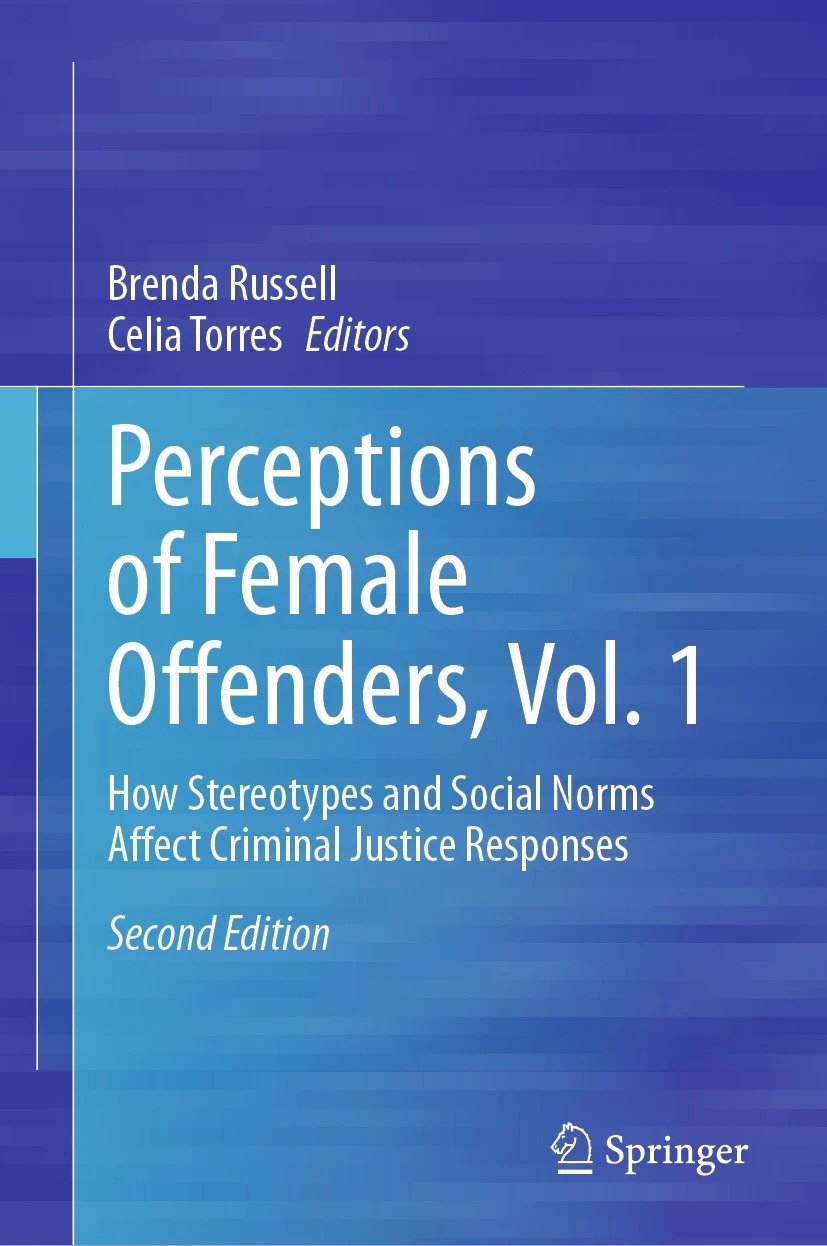
Two publications by Brenda Russell, professor of psychology at Penn State Berks, and former student Celia Torres, are now available:
Volume 1 of this two-volume series addresses the complexities of female offending. It highlights notable events, such as the Amber Heard-Johnny Depp case and the #MeToo movement, highlighting gender-based violence issues. Despite these events, societal attitudes toward women's rights remain stagnated or, in some cases, such as sexual expression and abortion, have regressed. The past decade has seen substantial growth in empirical research on female offenders, exposing intersectionality and societal biases. This volume incorporates updated research and diverse perspectives on topics related to female offenders from adolescence to adulthood and how stereotypes affect our perceptions of offenders in intimate partner and sexual violence. Together, these topics deepen our understanding of gender-related dynamics, emphasizing the need to unravel the intricate motivations and behaviors that lead to offending, while exploring the influence of stereotypes and gender norms on both offending and criminal justice response.
Volume 2 of this series addresses the significant role of social media in perpetuating harmful stereotypes about female offenders and how these stereotypes bleed into criminal justice response. This volume presents fresh research and theories concerning the intricate connections between female perpetration and lingering gender biases within the criminal justice system. It exposes gender disparities in treatment, criminal justice response, and sentencing, challenging inherent beliefs and systems that may not be as impartial as they seem. This compelling volume further explores the complex interactions between trauma and offending, and explores topics like partner violence homicide, the unique challenges of trans-women and myths associated with women in the criminal justice system. By offering insights into theories of female offending and sentencing, it paves the way for a more inclusive and equitable criminal justice system, inviting researchers, practitioners, and advocates to engage in crucial conversations and incite positive change.